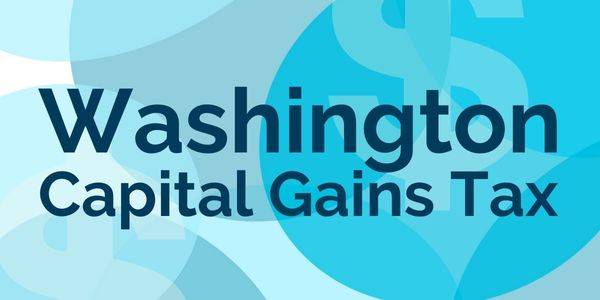The Latest on Washington’s Capital Gains Tax
October 31, 2023
by Mike Nelson

It is no secret that the new Washington Capital Gains Excise Tax (WA CGT), which taxpayers have begun paying for the 2022 tax year, has been a controversial and complex tax. When the tax was passed in 2021, the WSCPA advocacy team and volunteers, along with many others, anticipated that implementing a new tax would involve challenges, especially around the complexities and nuances related to many of these transactions. The recently-concluded tax season highlighted ambiguities in the language and additional unanticipated problems.
A lack of time is partly to blame for some of the problems. From the beginning, the Department of Revenue (DOR) had little time between the State Supreme Court’s decision in March to uphold the tax and the filing deadline in April. Although some work had been done while the court case was pending to create the online filing system that is currently in use, guidance and rules for taxpayers and practitioners were put on hold until the court decision was final.
This remains a complicated situation with many variables that are in flux, and much work is being done to make changes while the tax system continues to move forward. Some taxpayers who believe the tax violates the US Constitution are working to have the State Supreme Court ruling considered by the US Supreme Court. While that effort is underway, the DOR has released guidance, proposed rulemaking and potential legislation, and is working to amend the law and better prepare DOR and the public for future tax years.
One of the key issues we hear from CPAs is frustration with the online system that DOR requires for the submission of filings. For more than a year, we, along with others, have been requesting DOR to allow integration with tax preparation software so that CPAs, tax preparers, and taxpayers are not required to use the state’s separate system. DOR has long said they are working to expand options, and statute gives them the authority to do so. We have also shared feedback that the statute should be expanded to allow even more flexibility for those who would like or need non-electronic options for payments, filings, and communication.
On October 27, DOR held a second rulemaking hearing on proposed rules which address more aspects of the capital gains filings. The WSCPA provided new written feedback to this updated rulemaking draft which highlight several issues within the rules that members have shared, as well as issues that could be addressed to alleviate some struggles and ambiguity with the underlying statute and rules.
The top issue we have raised with these rules is the DOR’s position that the tax only applies “generally” to long-term assets subject to sales or exchanges. We have shared significant concerns that applying this tax to assets in absence of a sale or exchange, as the DOR is proposing violates the existing statute, which applies the tax to federal long-term capital gains as subject to a “sale or exchange” and defined as “long-term capital assets” in state law.
There has also been discussion around potential legislation for the 2024 session that would make a number of changes to the WA CGT and the filing requirements for it. IRC 1256 contracts and defining the constructed sale of 1256 contracts as sales or changes for the purpose of the WA CGT have been a part of these discussions. Similar to our objections to the proposed rules that would include assets not subject to a sale or exchange, we are objecting to defining 1256 contracts as considered sales when the marked to market treatment that is used for federal capital gains is, by definition, in absence of a sale or exchange. We have continued to argue that expanding an excise tax to assets that are simply held and not sold or exchanged creates untold uncertainty for taxpayers and practitioners. The penalties associated with underpayment or missed payments are immense, as set forth by the WA CGT. Uncertainty around what is or is not subject to the tax, high penalties, and limited or no penalty relief or safe harbors puts CPAs and their clients in a particularly challenging position. Reporting requirements is another area of challenge that has been a topic of conversation. One proposal would require taxpayers to submit tax filings from other individuals and organizations. We have raised serious concerns with these requirements as they could put CPAs in violation of the AICPA Code of Professional Conduct in terms of sharing taxpayer information, as well as the sheer unlikelihood that a taxpayer would be able to obtain tax filings from organizations or other individuals.
These are just some of the many moving parts and issues that are being considered with the WA CGT. As final rules and legislation are adopted, we will continue to offer CPE opportunities with the details you need to assist your clients with the WA CGT. In the meantime, keep an eye on WSCPA communications for the latest updates on these issues.

Mike Nelson is WSCPA Manager of Government Affairs. Contact Mike via email.
